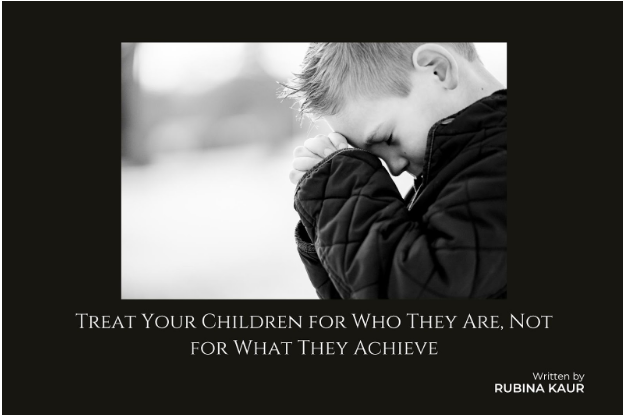








In a world obsessed with milestones, trophies, test scores, and accolades, it's easy to lose sight of what truly matters: the child's intrinsic worth. When we value children for who they are rather than for what they accomplish we set them on a path of deep-rooted confidence, resilience, and emotional well-being.
Research shows that young people often feel valued only when they succeed: over 70% believe their parents appreciate them more when they succeed academically or professionally; more than half even think their parents love them more when they do well—and a staggering one in four feel their identity hinges on their achievements. This "child-contingent self-esteem" erodes mental health and fosters anxiety.
Key Insight: Achievement-based validation creates conditional self-worth that damages children's mental health.
Michigan psychologist Morris Rosenberg found that children who feel they matter—who are seen, invested in, and relied upon—have stronger self-esteem and enjoy better mental health. In contrast, children who feel loved only when they perform well feel anxious and disconnected.
As principal Whitney Fleming explains, focusing only on outward success means we miss what truly counts: character, values, and inner life. When we raise children to be their authentic selves—not reflections of our ambitions—we nurture independence and fulfillment.
Here are some actionable ideas to help children feel valued for who they are:
Point out traits like curiosity, kindness, persistence, creativity regardless of outcomes.
Highlight effort like practicing, asking questions, or pushing through setbacks rather than performance alone.
Model failure as a learning opportunity. Reinforce that strengths and weaknesses can coexist, and it's okay to be imperfect.
These simple, unscripted moments—talking over dinner, walking together, playing—affirm that your child matters as a person, not as a performer.
Embed Unconditional Love: Unconditional parenting focuses on love and support as a gift, not something to be earned.
Supportive, authoritative parenting—warmth paired with age-appropriate expectations—fosters autonomy and self-worth. It contrasts sharply with conditional or authoritarian approaches that bind love to compliance and success.
Imagine telling your child: "I love how generous your spirit is," after a community-sharing act or "I admire how you kept going even when it got tough," rather than focusing solely on the "A" on their report. These messages communicate value beyond accomplishment and build identity rooted in character.
"I love how generous your spirit is" vs "Great job on that A!"
In affluent, competitive communities, the pressure to "achieve" often comes from parents, peers, and social media. But you can break the cycle: prioritize values, affection, and connection over accolades. It's not easy but it's necessary.
Our greatest role as parents is to help our children understand that they matter in full, inherently, and unconditionally. This foundation doesn't just grow happier kids—it builds adults who know who they are, not just what they've done.
When we treat children for who they are—their kindness, curiosity, resilience, and unique spirit—rather than what they achieve, we give them the greatest gift: the knowledge that they are enough, just as they are.
If you're looking for guidance on parenting approaches that nurture your child's self-worth and emotional health, we're here to support you and your family.
If this article resonated with you, share it with others who might benefit from these insights.